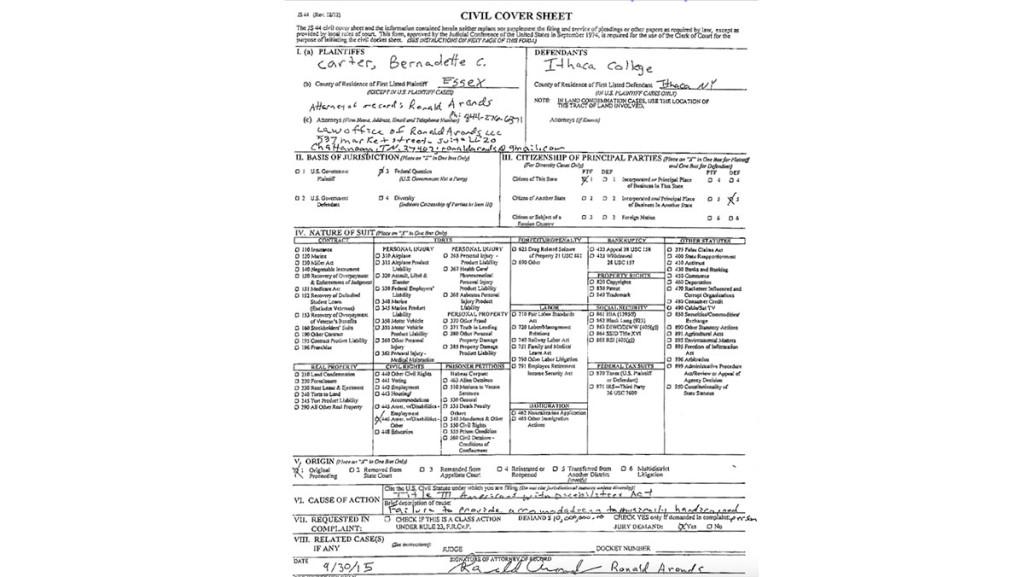A lawsuit filed against Ithaca College on Oct. 8, 2015, that sought $10 million in damages over a lack of disability compliance, has been resolved in the college’s favor.
The case was dismissed following a motion from the college stating that the plaintiff, alumna Bernadette C. Carter ’14, of Essex County, New Jersey, failed to present a claim. Judge David Hurd of the Northern District of New York approved the motion, dismissing the case July 29, 2016.
According to the Legal Information Institute, a resource database compiled by the Cornell University Law School, “failure to state a claim” is a defense asserting that even if all the factual allegations in a complaint are true, they are insufficient to establish a cause of action.
“We are pleased that the judge agreed with the college’s position that the suit should be dismissed due to the plaintiff’s failure to state a claim,” David Maley, senior associate director for media and community relations, stated via email.
Maley said he cannot provide any additional information about the case. He said he is unaware if the plaintiff appealed the court’s decision.
Ronald Aronds, attorney in the Law Office of Ronald Aronds, the firm that represented the plaintiff, said he is unauthorized to discuss the case but confirmed it was resolved.
According to the court documents, Carter incurred a “disabling disease or medical condition” between August 2012 and May 2014 that the college recognized as requiring accommodation.
The documents do not specify what Carter’s condition was, but they state that as a result of the college’s failure to provide accommodations, Carter “suffered both physical pain and mental pain and anguish, causing her to have a more difficult time doing her school work and resulting in her being denied opportunities in her school program that were given to other students without disabilities.”
The lawsuit was filed under Title III and Title IV of the Americans with Disabilities Act and Section 504 of the Rehabilitation Act of 1973. According to Title III, businesses and nonprofit service providers, such as private schools, that provide public accommodations must comply with nondiscrimination requirements to make their services accessible. Title IV addresses telephone and television access for people with hearing and speech disabilities. Section 504 states that “no qualified individual with a disability in the United States shall be excluded from, denied the benefits of, or be subjected to discrimination under” any program that receives federal financial assistance.
The $10 million sought would have covered damages, attorney’s fees, costs, humiliation and embarrassment as well as any additional damages, according to court documents.
Carter could not be reached for comment.








